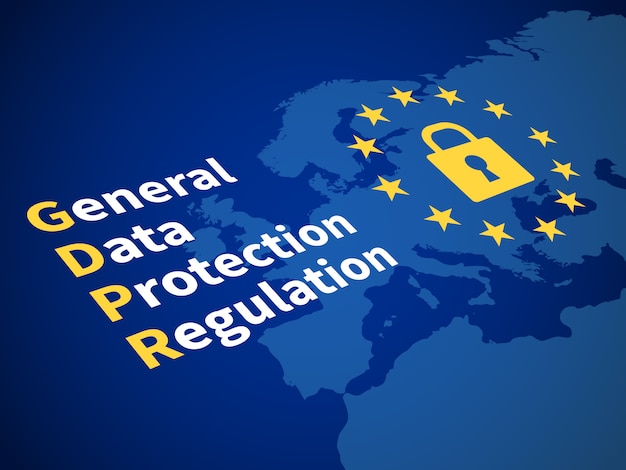GDPR: The Law That Sparks Controversy
Introduction to the General Data Protection Regulation (GDPR) often brings mixed feelings among businesses and individuals alike. Established to enhance data protection rights for individuals within the European Union (EU), GDPR was designed to replace the UK’s Data Protection Act of 1998. However, its implementation in May 2018 led to considerable anxiety across industries due to its complexity and the substantial fines linked to non-compliance, with penalties reaching up to €20 million or 4% of a company’s global turnover.
The Context of GDPR and Its Implementation
Prior to GDPR, the UK operated under the Data Protection Act of 1998, which laid the foundation for data privacy laws. Yet, the ratification of GDPR marked a significant transformation, raising the bar for data protection compliance and establishing severe financial repercussions for infringements. This shift has provoked a mixed bag of sentiments—many appreciate its strict guidelines while others lament the complications it has brought.
The Adequacy Agreement and Its Importance
As of 2025, GDPR will undergo what some term the ‘seven-year itch’ assessment, a pivotal moment for UK data protection policy. Since the UK’s exit from the EU in 2020, the country has remained tethered to EU data protection regulations through the Adequacy Agreement. This agreement essentially recognizes that the UK’s data protection laws are on par with those in Europe. However, it is crucial to note that this agreement will be up for review in summer.
If the Adequacy Agreement is not renewed, the repercussions for UK businesses could be substantial, as organizations would need to navigate both UK and European data protection regulations—essentially two separate minefields. The stakes here are high, especially for entities engaged in transnational commerce.
Navigating the Amendments to UK Data Protection Legislation
The UK is currently in the midst of reforming its data protection laws. The first attempt, known as the ‘Data Protection and Digital Information Bill,’ was halted during Liz Truss’s brief time in office. It was reintroduced but subsequently tilted to its demise alongside the dissolution of parliament in anticipation of the 2024 General Election. There were widespread concerns that both iterations of the Bill could jeopardize the Adequacy Agreement due to their perceived inadequacies in aligning with EU standards.
The latest iteration, named the Data (Use and Access) Bill, seeks to find a balance whereby it passes the scrutiny of EU officials while making it easier for UK entities to adhere to data protection obligations. The law aims to merge emerging technologies with practical applications for GDPR compliance, particularly an emphasis on artificial intelligence (AI).
What Changes Can We Expect?
- Subject Access Requests: Under the new legislation, requests for data access must be made directly to the data controller before involving the Information Commissioner’s Office (ICO). This change aims to streamline processes.
- Legitimate Interest: The necessity for a balancing exercise to utilize legitimate interest may be removed, potentially simplifying compliance.
- Special Categories of Data: New categories of sensitive data could be introduced, similar to current provisions for health data.
- Automated Decision-Making Rules: A probable loosening of regulations surrounding automated decisions could occur, yet it will be vital to avoid any implications of covert decision-making.
Considering the Changes: E-Privacy and Consent Regulations
On another front, the legislation may relax conditions regarding consent for cookie use. Nevertheless, this should be approached with caution as penalties for e-privacy violations are expected to rise significantly, possibly doubling from a maximum of £500,000 to £17.5 million or 4% of global turnover. The ICO has placed a strong emphasis on enforcing compliance regarding e-privacy infractions, highlighting the need for businesses to be vigilant.
An Important Reminder for Organizations
Companies must acknowledge their legal obligations under GDPR. Here are some vital reminders for businesses:
- Since GDPR’s establishment in 2018, organizations should regularly audit their data protection provisions.
- Small and medium-sized enterprises (SMEs) cannot ignore GDPR; compliance applies regardless of the size of the organization.
- Any business dealing with EU residents or operating in Europe must comply with GDPR alongside UK legislation.
- A robust data privacy policy and a solid understanding of AI usage are critical for compliance.
- Maintaining up-to-date cybersecurity measures is essential to protect sensitive data.
The Role of the ICO in the Changing Landscape
As part of the ongoing evolution of GDPR, the ICO—set to be renamed the Information Commission—has shifted focus from strictly imposing financial penalties to a more diversified enforcement mechanism that includes reprimands and guidance. However, the rising penalties for e-privacy violations suggest that businesses could see heightened scrutiny and increased enforcement actions as regulators adapt to the changing digital landscape.
Final Thoughts: The Human Element in Data Protection
Ultimately, the most critical aspect of GDPR lies in how organizations handle their employees’ personal data. If your last evaluation of GDPR compliance was back in 2018, it’s time for an urgent review. The landscape of data protection is continually in flux, and engaging in a thorough audit of your HR practices concerning data privacy is crucial for safeguarding your organization’s future.
For further assistance and expertise in navigating the complexities of data protection regulations and ensuring your organization complies adequately, we invite you to reach out via the contact details provided. Remember, keeping abreast of GDPR changes doesn’t just help in compliance; it fortifies the reputation and trustworthiness of your business.
Interested in Compliance Expertise? For expert regulations around HR and payroll, feel free to call us at 0345 073 0240 or email: [email protected].


Leave a Reply